There’s no one reason why dogs run away, but regardless of why, there is a way to keep your dog safe that will likely work for your household. Here’s what you need to know to avoid a lost dog, from prey drive to mating drive and everything in between.
The information provided herein is for informational purposes only. Please refer to our disclaimer for more details..
Fear and Common Triggers
Image source: Kojirou Sasaki
Scary Sights and Sounds
Dogs have sensitive hearing and may find themselves overwhelmed by loud noises. Fireworks and thunderstorms are common triggers, but anything from a vacuum cleaner to a hair dryer can also cause a panic. Not every dog is bothered by loud noises, but some certainly are.
- Loud noises like fireworks can cause dogs to flee in panic.
- Dogs may escape seeking familiar surroundings after a move.
- Separation anxiety can lead dogs to exhibit escape behaviors.
- Unspayed/unneutered dogs often run off pursuing mates.
Unfamiliar Surroundings
Dogs are creatures of habit and become uneasy in unfamiliar surroundings. Moving to a new house can be a major stressor for dogs.
Sudden changes in the environment, including new smells, sights, and sounds, can cause anxiety in dogs, just as in people. Everyone takes time to adjust to a new home, but a dog can’t understand why they can’t go home like a person can.
Some dogs attempt an escape back to their previous home, where they felt secure and comfortable. It’s crucial to provide extra care and attention to help your dog transition to a new home.
Behavioral and Psychological Factors
Image source: Alvan Nee
Separation Anxiety
Most dogs feel a little anxious when they’re alone, but dogs with separation anxiety feel extreme stress when they are separated from their owners, even for short periods. When a dog with separation anxiety is left alone, destructive behaviors and escape attempts are often the result.
Training, routine, and sometimes medication can significantly reduce the anxiety levels in these dogs. However, it can be nearly impossible to keep a dog from running away when it’s gripped by this kind of anxiety.
Boredom or Frustration
Dogs are intelligent and active and demand significant mental and physical stimulation to stay happy and healthy. Without it, they easily become bored or frustrated. There’s a good chance that a dog chronically in search of something to do will find a way to slip off in search of some entertainment.
Entertaining your dog with regular exercise, playtime, and mental challenges is crucial to prevent your dog from searching for something to do down the road. However, your dog might still wander. Some breeds, especially northern breeds like Huskies who were bred to roam, are especially prone to it and may need to stay inside to prevent escapes.
Loneliness
Dogs are social creatures. They don’t do well with isolation. Lonely dogs may run away in search of social interaction.
You may have to leave your dog at home when you go to work or on errands, but don’t leave your dog alone too much. Be sure they get enough attention and companionship to keep them from wanting to find it elsewhere.
Instinctual Drives
Mating Instinct and Sex Drive
When dogs become sexually mature, they may feel compelled to seek out mates. This is especially pronounced in unneutered male dogs and unspayed female dogs, but it happens in fixed dogs too.
The instinct to mate can lead dogs who have otherwise never left the yard to wander far in search of a mate, often without any apparent regard for their safety. This is especially true when a male dog smells a female dog in heat.
Spaying and neutering can significantly reduce this instinctual drive, but may not eliminate it. Keep a close eye on your dog as they become sexually mature to see if this will be a driver for your dog to run away.
Hunting Instinct
Many dog breeds have a strong hunting instinct triggered by moving objects like squirrels or other small animals. When a dog sees potential prey, it may give chase, often while completely ignoring commands and surroundings.
Dogs contained in a yard may be driven to dig under or jump over if they see or smell potential prey. Some dogs can be trained to stop this behavior, but for some dogs the instinct is just too strong. Walking your dog on a strong leash and containing them inside or in a kennel may be necessary.
Dog Breeds Prone to Running Away
Image source: Mark Galer
Any dog might run off, but some dog breeds are more prone to it than others. These breeds often have a strong hunting drive, a love for exploration, or a high energy level that makes them more likely to attempt escapes.
- Hound Breeds: Breeds like Beagles, Bloodhounds, and Greyhounds are known for their keen sense of smell and strong hunting instincts. These dogs may run away in pursuit of a scent or potential prey.
- Herding Breeds: Australian Shepherds, Border Collies, and German Shepherds, bred for herding livestock, often have a strong desire to chase and herd, combined with wicked intelligence that makes for a dog that needs to stay busy. Without enough mental and physical stimulation, these dogs can be prone to escaping.
- Pulling Breeds: Breeds such as Huskies and Malamutes, known for their endurance and independence, and bred to travel many miles every day, are especially prone to wandering.
- Terriers: This group, including Jack Russell Terriers and Fox Terriers, are known for their energetic and determined nature. They’re bred to dig, so digging under a fencse seems natural to them.
Keep Your Dog From Running Off
Secure Home and Yard
Regularly maintain fences, gates, and doors to prevent adventurous dogs from finding an escape route. Pay special attention to potential escape points like doors and windows as well. May dogs benefit from a baby gate to keep them from bolting through dogs when people are entering and leaving the house.
Know Your Dog
Is your dog showing signs of wanting to run off as they reach sexual maturity? Spaying or neutering can help control their mating instincts.
Does your dog get enough exercise and mental stimulation? Boredom and anxiety often cause dogs to run away. Engage your dog in mentally stimulating activities and provide them with ample exercise to keep these issues at bay.
Will your dog give chase at the first sign of prey, no matter how much you train them? Your dog may just not be a candidate for off-leash walks and may need a fenced area to run free.
Train Your Dog
Recall training can prevent your dog from straying too far during walks or playtime. For dogs with separation anxiety, a gradual approach to being alone, coupled with positive reinforcement, can help them feel more comfortable alone. Dogs trained in competitive sports or activities may be less bored and more willing to stay in the yard.
Use Technology
You probably know how important it is to microchip your dog and have them where ID tags so they can be returned to you if found. However, it’s even better to find them yourself, right away.
Keeping track of your canine companion has become a lot easier with the help of GPS dog trackers. Real-time tracking means if dogs escape, they can be recaptured quickly.
Actions to Take if Your Dog Runs Away
Your dog may end up lost despite all precautions. Staying calm is key. A panicked person only results in a more panicked dog. Don’t chase the dog. In fact, if the dog is running away, try running in the other direction. This can stimulate a chase-and-play response and actually get the dog to come to you.
Once you’ve lost sight of the dog, begin by searching your immediate neighborhood and alerting local community members by handing out and hanging up fliers. Social media can be a powerful tool in spreading the word about your missing dog. Contact local animal shelters and inform friends and family to broaden the search net.
FAQ
Where do dogs go when they run away?
Some dogs may explore their immediate surroundings, while others might be driven by specific instincts, like searching for a mate or chasing a scent, leading them farther away. Dogs that run away due to fear, such as from loud noises, might not have a specific destination and could get lost more easily. Some dogs may be trying to find their old home, traveling surprising distances with amazing accuracy to get back.
Will a dog come back if they run away?
Whether a dog will return depends on their ability to navigate, the distance they’ve traveled, and the environment they are in. Dogs with a strong homing instinct and familiarity with the area may find their way back. Dogs who left out of loneliness or boredom may not want to come back.
How do you catch a dog that runs away from you?
Chasing after the dog will likely cause them to run further away. Instead, try calling them in a calm, happy voice or using treats to lure them. Running away from the dog can encourage them to chase you. If the dog is still wary, sitting or lying down might make you appear less threatening.
519views
Share on Facebook
 Dark Mode
Dark Mode 

 No fees, cancel anytime
No fees, cancel anytime 



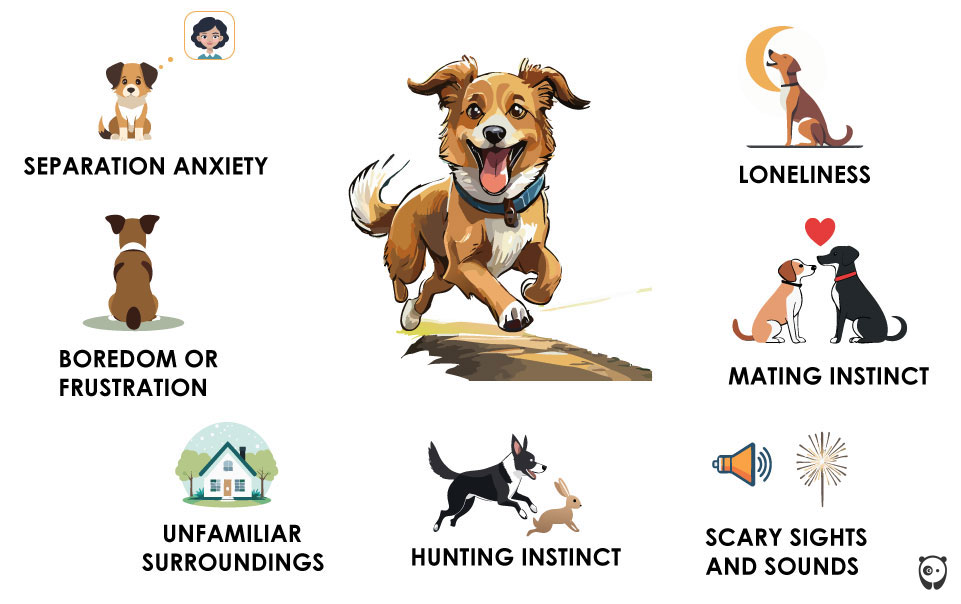
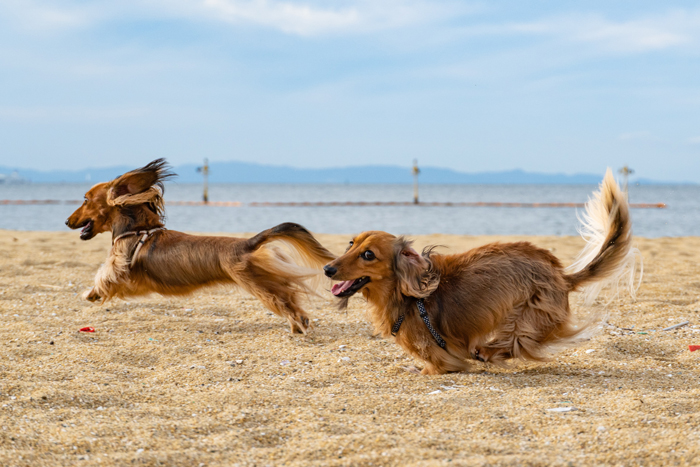

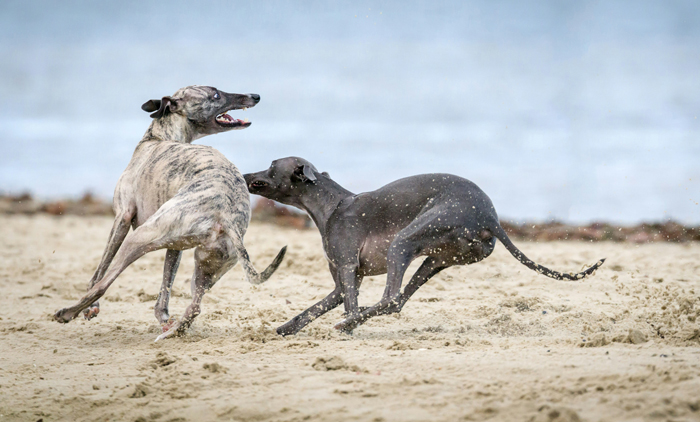
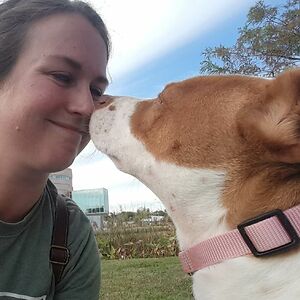









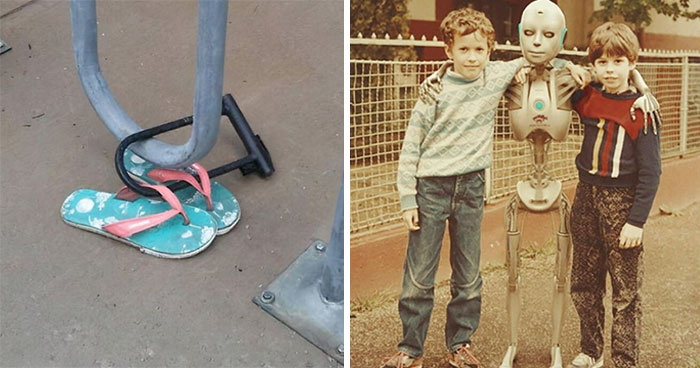












3
0